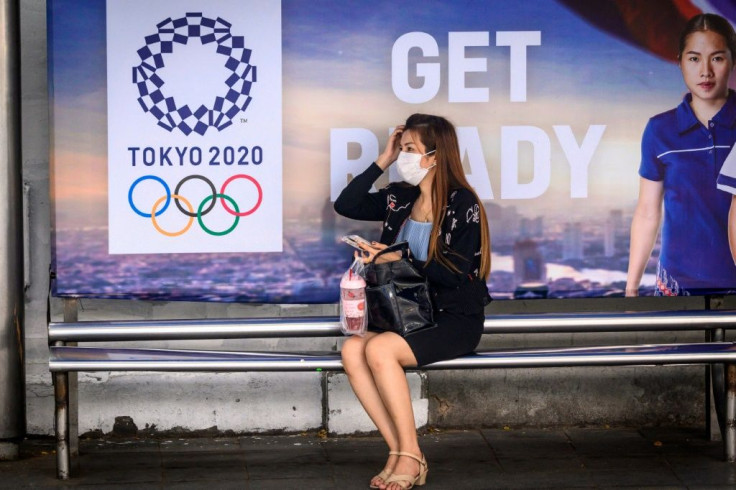Will Japan Hold The 2020 Summer Olympics As Coronavirus Spreads Globally?

KEY POINTS
- Olympic officials, Japanese ministers contend summer games will occur
- Japan has spent tens of billions of dollars to prepare for Olympics
- Japan has had relatively low number of virus infections
Senior government officials in Japan insist the Tokyo Summer Olympics will occur as scheduled despite the global coronavirus epidemic that has reached all parts of the world.
"A complete Olympics is what we are aiming for," said Seiko Hashimoto, Japan’s Olympic minister. "We will do our utmost to prepare [to hold the Olympics] as scheduled so that the International Olympic Committee will be convinced we are capable of hosting the games.”
Japan has thus far confirmed more than 1,400 cases and 28 deaths from coronavirus.
On Tuesday, the International Olympic Committee, or IOC, backed Japan and is said it is committed to staging the games as planned from July 24 to Aug. 9.
“The IOC remains fully committed to the Olympic Games Tokyo 2020, and with more than four months to go before the Games there is no need for any drastic decisions at this stage; and any speculation at this moment would be counter-productive,” the sports body stated.
Other major sporting events, including football’s Euro 2020 the French Open tennis grand slam, have been cancelled, while in the U.S., the NBA, NHL and Major League Baseball have suspended their seasons due to the virus.
Tokyo expects to host about 11,000 athletes to the games, however many of those sportsmen and sportswomen were finding it difficult to train or journey to venues due to travel restrictions in many countries.
“This is an exceptional situation which requires exceptional solutions,” the IOC said. “The IOC is committed to finding a solution with the least negative impact for the athletes, while protecting the integrity of the competition and the athletes’ health. No solution will be ideal in this situation and this is why we are counting on the responsibility and solidarity of the athletes.”
In a communique, IOC also suggested that efforts to contain the virus were working effectively.
“The IOC has confidence that the many measures being taken by many authorities around the world will help contain the situation of the COVID-19 virus,” it added.
On Sunday, Japan’s Prime Minister Abe Shinzo, reiterated his support for holding the summer games. “I want to hold the Olympics and Paralympics perfectly, as proof that the human race will conquer the new coronavirus, and I gained support for that from the G-7 leaders,” he said.
Tokyo governor Yuriko Koike said it would be "unthinkable" to cancel the Olympics.
Several athletes have condemned the IOC’s stance -- IOC member and former Canadian ice hockey player Hayley Wickenheiser called the decision “insensitive and irresponsible,” while heptathlon champion, Katarine Johnson-Thompson and pole vault champion, Katerina Stefanidi, said the IOC was placing athletes’ lives at risk.
“There is no postponement, no cancellation. But it [the IOC] is putting us at risk,” Stefanidi said. “We all want Tokyo to happen but what is the plan B if it does not happen? Knowing about a possible option has a major effect on my training because I may be taking risks now that I would not take if I knew there was also the possibility of a plan B.”
Ironically, the deputy head of Japan's Olympic Committee Kozo Tashima has himself tested positive for coronavirus.
Most of the Japanese public oppose holding the games this summer. An Asahi newspaper poll revealed 63% of people across Japan think the games should be postponed, while 23% said they should be held as planned.
"To be honest, even if Japan overcomes this crisis, we wouldn't receive visitors from the world. I think we'd better not hold [the games]," said Koki Miura, a 27-year-old employee at an internet company. "We cannot sacrifice people's lives for it.”
French Olympic Committee president Denis Masseglia said if the coronavirus is not contained by the end of May, he couldn’t conceive how the Olympics could occur as scheduled.
Even U.S. President Donald Trump called for postponing the Tokyo Games for a year, citing that would be better than seeing "empty stadiums all over the place."
"There is a possibility these public opinions can shift as the situation is changing ahead,” Tokyo Olympics CEO Toshio Muto admitted.
Cancelling the Olympics would cost Japan a lot of money.
“A lot of [small business] investment has been counting on the 2020 Tokyo Olympics, and now it’s not clear if we can hold it or not,” said former Bank of Japan board member Sayuri Shirai “This is quite a serious issue.”
He added that many local businesses have already invested in restaurants and tourist activities to prepare for large foreign crowds.
The Bank of Japan estimated that 33 million visitors were expected to visit Tokyo in 2020 and that “aggregate construction investment associated with the Olympic Games will amount to a total of 10 trillion yen ($92 billion).”
© Copyright IBTimes 2024. All rights reserved.





















